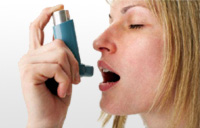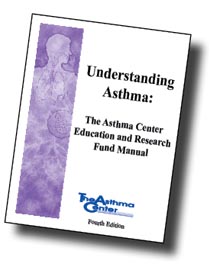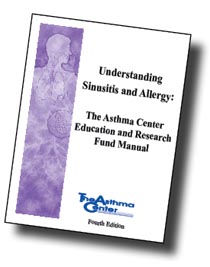How is asthma treated in the emergency room?
Emergency rooms vary in staffing, equipment and quality like any other element within the medical system. If you are asthmatic, you may potentially have an acute asthmatic attack (onset of strong wheezing, coughing, shortness of breath and/or turning blue) and thus may need emergency treatment. If you are prepared to treat an asthma flare early at home with a nebulizer and possibly oral corticosteroids as directed by your asthma specialist, you may never need an emergency room. Remember it is important to tell your asthma specialist as soon as your symptoms flare. Nevertheless occasionally your asthma may get out of control because you do not follow recommendations, run out of medication, fail to attend follow-up visits as recommended, lack emergency back up medications, or carelessly put yourself in risky situations (e.g. exposure to cigarette smoke or known allergens). You may also experience severe flares due to situations that you cannot avoid including respiratory infections, exposure to certain medications, inadvertent exposure to air pollution or allergens and stress.
When to Go and What to Do
When you have a bad flare of asthmatic symptoms that do not respond to treatment, check with your doctor for advice, and if necessary, ask him/her to call ahead to the emergency room to notify the staff of your condition and what medication(s) you have received.
Just before leaving the house make sure you have your medications with you (e.g. nebulizer treatment and/or oral corticosteroids). If you have an EpiPen®, take it with you as a back up while on route to the ER. Although medications do not always work immediately, they will be on board and may start working while you are in transit or waiting to start treatment in the ER.
It is very uncommon to die of asthma if you arrive in the ER early enough during your attack. However a delay that makes you arrive at the ER already in respiratory failure is certainly one of the main reasons for asthma deaths. In this case, you may stop breathing before arriving in the hospital and already have severe irreversible damage due to low oxygen and pneumothorax.
You should know the location of an ER close to your home. If you have severe asthma, it would be wise to know the location of an ER close to wherever you are traveling and along the travel route if you are driving. This knowledge can save your life. You should be aware that if you go to an ER that does not participate in your medical insurance program, or if you are in an HMO and you do not first get approval from your primary care physician, you may be liable for all financial charges. However if you sense that you do not have time to resolve these issues, do not delay vital treatment. Go immediately to the nearest ER. Documentation of a severe asthma attack usually will be accepted by most insurance companies.
In the ER
Once you are evaluated by an ER physician, you will most likely receive oxygen, another nebulizer treatment and possibly IV corticosteroids. Occasionally the doctor may give you epinephrine injections. Usually you will receive 1 - 3 treatments of a nebulized bronchodilator, improve and go home. If you show no clear signs of improvement within a few hours, you will be hospitalized. If the doctor finds a complication of asthma while in the ER (e.g. pneumothorax or air in the chest), you will also be hospitalized.
Hospitalization
The doctor could decide to hospitalize you when he/she feels that the asthmatic attack could soon exhaust you to the point that you may not be able to breathe effectively on your own. Occasionally your oxygen will decrease markedly, the waste gas (carbon dioxide [CO2]) will increase, and you then will be in danger of entering into respiratory failure. When your CO2 rises significantly, you enter into respiratory failure and may stop breathing, fall unconscious, develop an irregular heart rate and/or die if aggressive treatment is not started.
If you are hospitalized with asthma, you will typically receive oxygen, nebulized albuterol or similar bronchodilators, IV corticosteroids and other treatments as necessary over a few days. Your condition typically will improve rapidly within a day or two. Hospitalization for the majority of asthmatic attacks lasts from 3 to 5 days. Severe episodes requiring intensive care unit (ICU) admission may last much longer.
If you appear to be at risk for respiratory failure, you may be admitted to the ICU for frequent monitoring and, if necessary, respiratory support. If you cannot breathe on your own, an endotracheal tube is inserted through the mouth or nose into the airway, and a respirator will be attached to temporarily help you breathe until the attack resolves. This phase rarely lasts more than a few days.



